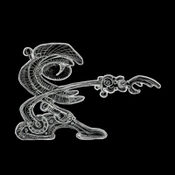Template:Are You Sure/January 7: Difference between revisions
Jump to navigation
Jump to search

No edit summary |
No edit summary |
||
| Line 2: | Line 2: | ||
• ... that engineer '''[[Sandford Fleming (nonfiction)|Sandford Fleming]]''' proposed a single 24-hour clock for the entire world after missing a train because its printed schedule listed p.m. instead of a.m.?<br> | • ... that engineer '''[[Sandford Fleming (nonfiction)|Sandford Fleming]]''' proposed a single 24-hour clock for the entire world after missing a train because its printed schedule listed p.m. instead of a.m.?<br> | ||
• ... that experimental physicist '''[[Chien-Shiung Wu (nonfiction)|Chien-Shiung Wu]]''' conducting the Wu experiment (1956), which contradicted the hypothetical law of conservation of parity?<br> | • ... that experimental physicist '''[[Chien-Shiung Wu (nonfiction)|Chien-Shiung Wu]]''' conducting the Wu experiment (1956), which contradicted the hypothetical law of conservation of parity?<br> | ||
• ... that electrical engineer [[Zénobe Gramme (nonfiction)|Zénobe Gramme]] invented the Gramme machine, a type of direct current dynamo capable of generating smoother (less AC) and much higher voltages than earlier dynamos, and that the Gramme machine was thefirst usefully powerful electrical motor that was successful industrially? | • ... that electrical engineer '''[[Zénobe Gramme (nonfiction)|Zénobe Gramme]]''' invented the Gramme machine, a type of direct current dynamo capable of generating smoother (less AC) and much higher voltages than earlier dynamos, and that the Gramme machine was thefirst usefully powerful electrical motor that was successful industrially? | ||
Revision as of 03:39, 7 January 2020

Routine annual steganographic analysis of Reaching unexpectedly reveals "at least five hundred kilobytes, perhaps a thousand twenty-four" of previously unknown Gnomon algorithm functions.
• ... that engineer Sandford Fleming proposed a single 24-hour clock for the entire world after missing a train because its printed schedule listed p.m. instead of a.m.?
• ... that experimental physicist Chien-Shiung Wu conducting the Wu experiment (1956), which contradicted the hypothetical law of conservation of parity?
• ... that electrical engineer Zénobe Gramme invented the Gramme machine, a type of direct current dynamo capable of generating smoother (less AC) and much higher voltages than earlier dynamos, and that the Gramme machine was thefirst usefully powerful electrical motor that was successful industrially?